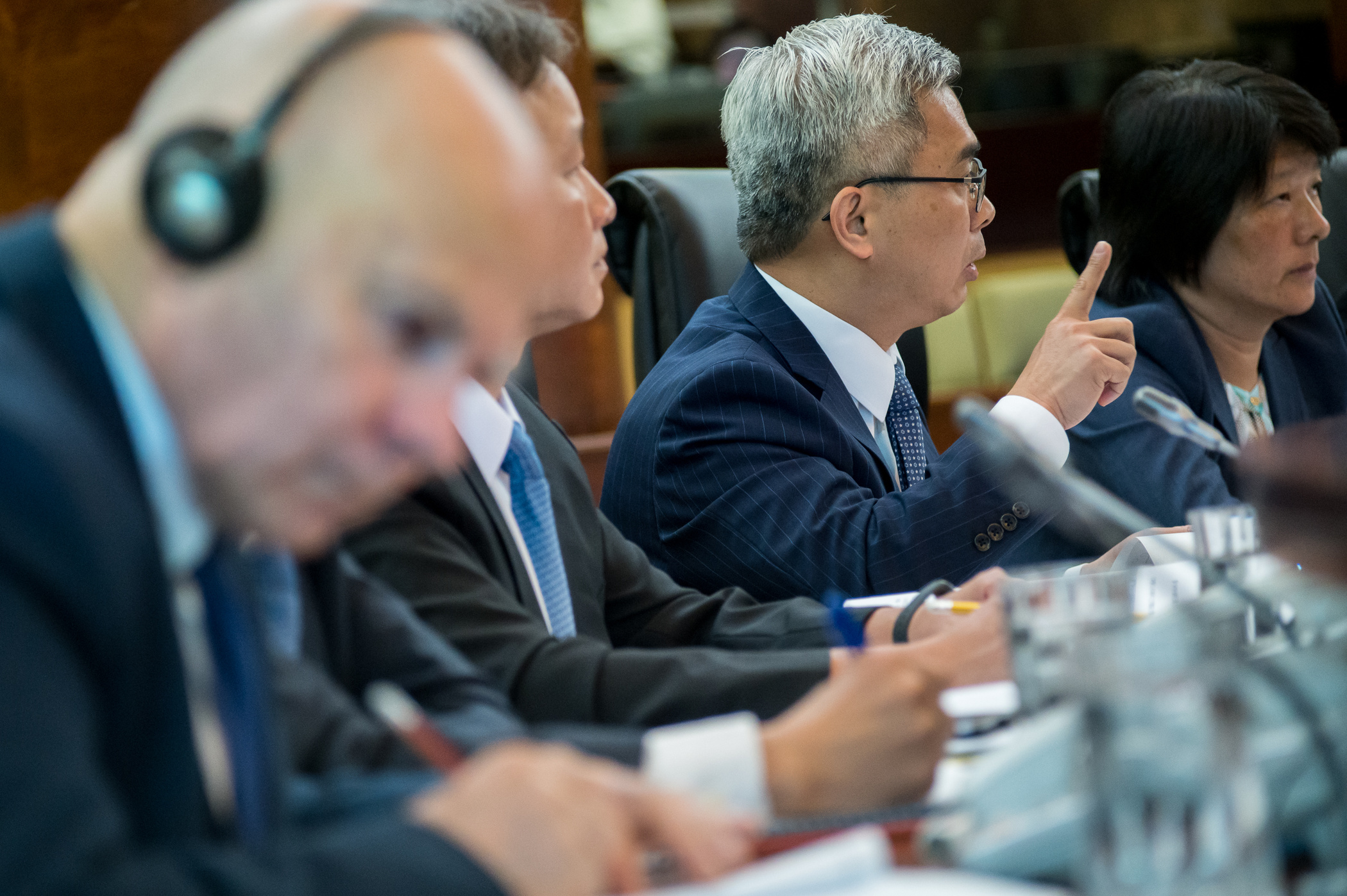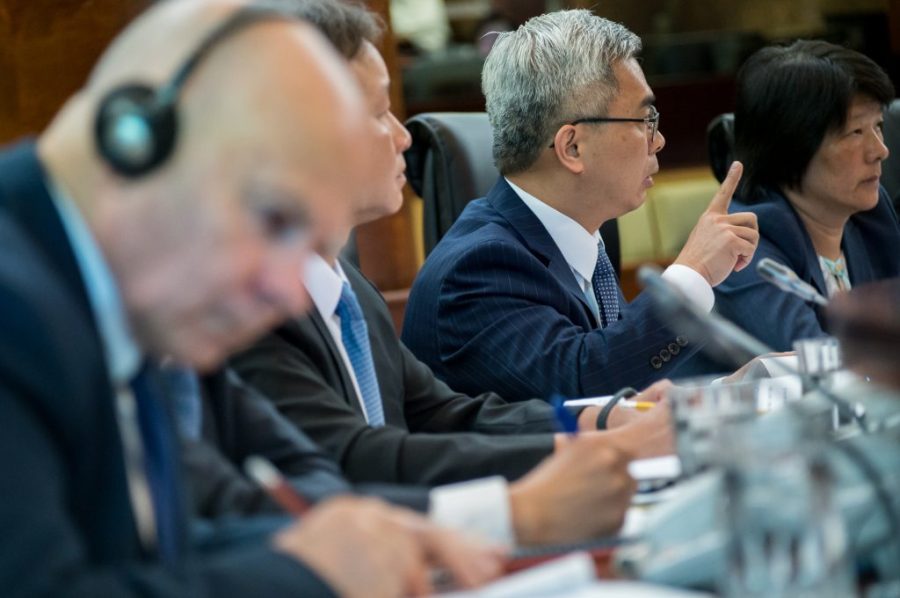The Legislative Assembly (AL) Monday passed the outline of a government-initiated civil protection framework bill, which proposes a new crime category for causing harm to public safety, order and peace – such as by spreading rumours – when “unforeseen public incidents” affect the city – such as typhoons, other natural disasters and major accidents.
The bill proposes that offenders will face a prison term of up to two years. The prison term will be up to three years if the crime has effectively caused panic among the public or a negative impact on the authorities’ ongoing civil protection work, or if the rumour has caused residents to believe that the “information” originated from the authorities.
In the aftermath of deadly Super Typhoon Hato, which hit the city on August 23, 2017, the government has been proposing a new civil protection framework law with the aim of allowing the government to better respond to “unforeseen public incidents”, and launched a public consultation on the matter in June last year.
The government proposes that the new framework law replace the existing decree-law regulating the government’s civil protection system and tasks promulgated back in 1992 when Macau was still under Portuguese administration.
Secretary for Security Wong Sio Chak introduced the outline of the bill during a plenary session in the legislature’s hemicycle yesterday.
Wong said that when society is being hit by a major disaster, the spreading of fake messages would “surely” cause panic among the public and may eventually cause anxiety in civil society, which would possibly cause a more serious negative impact than what the disaster per se has caused.
In order to ensure the efficient dissemination of important information by the authorities and to prevent the spreading of false rumours, in the event of “unforeseen public incidents”, the bill proposes a new crime category of causing harm to public safety, order and peace.
Wong said, “The bill proposes two levels of punishments in line with the [criminal] act per se and its outcome.”
Wong said that the bill aimed to “punish those who create or spread rumours” by closing the existing legal loopholes, adding that the proposed crime category and its constituent elements were rigorously defined in the bill.
The bill proposes that “unforeseen public incidents” be divided into four categories, namely natural disasters, major accidents, public health incidents, and public safety incidents.
According to the bill, the first category includes floods, droughts and other meteorological disasters, while the second category includes traffic accidents, environmental incidents, nuclear accidents, as well as incidents that cause a major impact and damage to Macau’s energy supply or telecommunications services.
According to the bill, public health incidents refer to incidents originating from the biological sphere that seriously affect public health and life safety, while public safety incidents refer to safety incidents concerning internal security or the functioning of the economy, as well as safety incidents arising from external factors.
The bill proposes that a table of “unforeseen public incidents” is to be listed by supplementary regulation. According to the public consultation document on the drafting of the bill published last year, the proposed category of public health incidents includes epidemic outbreaks and food safety incidents, while the proposed category of public safety incidents includes terrorist attacks.
The bill proposes five levels of “unforeseen public incidents” based on their severity, namely a state of normality, a state of prevention, a state of immediate prevention, a state of rescue, and a state of catastrophe or calamity. The latter three levels are listed in the existing civil protection decree-law.
The bill proposes that when a state of immediate prevention or a more serious state is declared, the chief executive can order the implementation of exceptional measures, such as 1) the prohibition or restriction on the movement or stay by individuals or vehicles in certain areas; 2) the mandatory evacuation of people whose life is under threat; 3) the rationing – or even the suspension – of the provision of public services – such as public transport, telecommunications, water supply and electricity supply – and daily necessities; and 4) the closure of particular public and private organisations and border checkpoints.
The bill also proposes that the chief executive can also – depending on the respective safety situation – order the suspension of casino operations and large-scale events in the areas affected by “unforeseen public incidents”.
The bill will be discussed in detail by a standing committee of the legislature before it will once again be submitted to a plenary session for an article-by-article vote in its second and final reading.
Four lawmakers – non-establishment Sulu Sou Ka Hou, Ng Kuok Cheong, Au Kam San and José Maria Pereira Coutinho – voted against the bill, while 25 lawmakers voted in favour of the bill. As customary, Legislative Assembly (AL) President Ho Iat Seng did not vote.
During the plenary session, a number of lawmakers raised their concerns about the new proposed crime category of causing harm to public safety, order and peace – Article 25 of the bill, including the perceived vagueness of the article.
Wong pledged that the government will discuss the article with lawmakers “word by word” during the upcoming committee meetings, with the aim of ensuring the precise meaning of its wording.(Macaunews)






